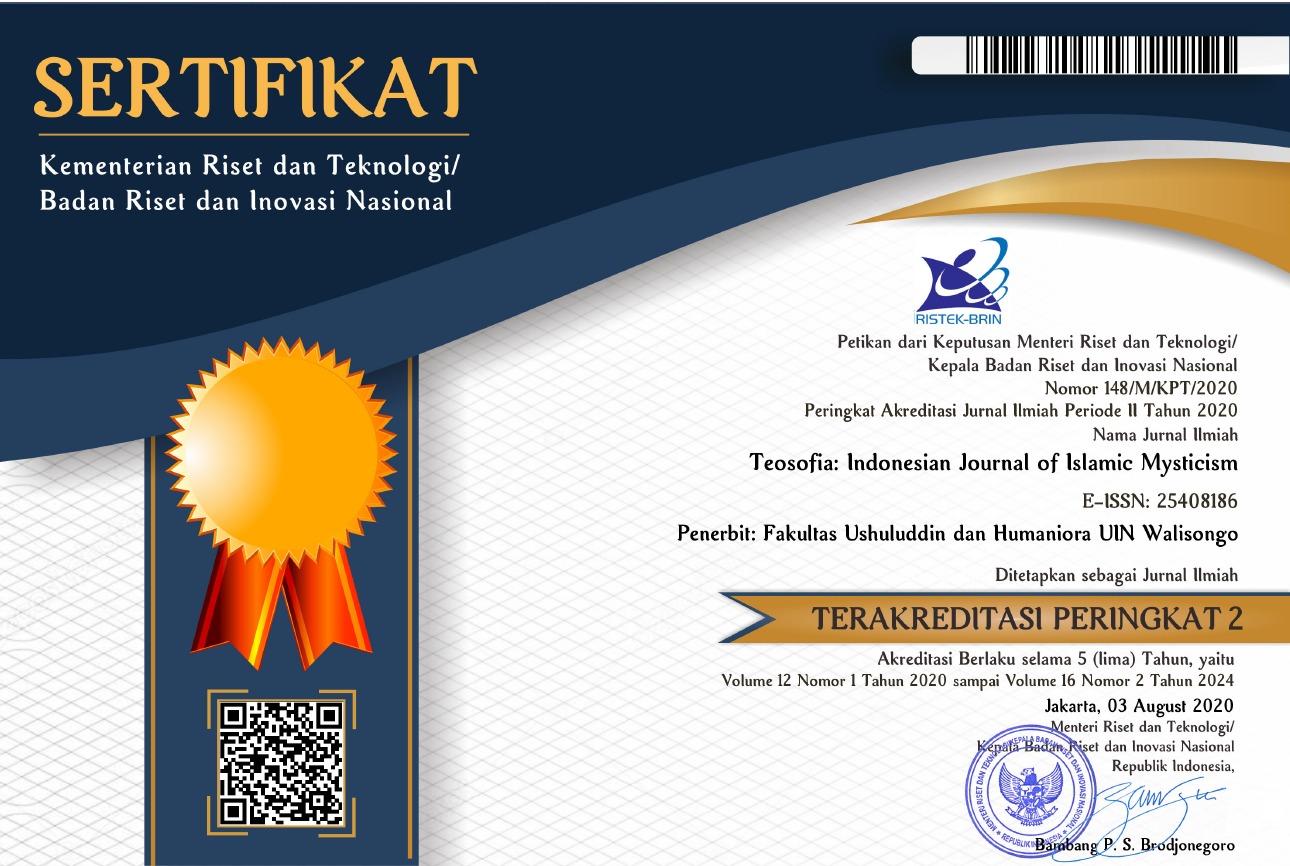KI AGENG SURYOMENTARAM’S PHILOSOPHICAL VIEWS AND ITS RELEVANCE FOR POSTMODERNITY
DOI:
https://doi.org/10.21580/tos.v5i1.1724Keywords:
philosophy, Javanese, Ki Ageng Suryomentaram, postmodernityAbstract
Postmodern society has related to the terms of relativism, it is kind of the rejection of certain universal forms (grand narrative). In this case, the uncertainty of ethic is being one of the problems of humanity that exist in postmodern society. It implies that there is no true moral principle. The accuracy of all moral principles are relatively accommodated to the concerned or selected individual environment. The difficulty is how to marry such values to respect for diversity. Some agreements on the principles of social justice are desirable. Human has to position themselves between ‘absolutism’ and ‘anything goes’. Ki Ageng Suryomentaram, one of the Javanese Philosophers, formulated a set of philosophical views called to deal with human life. It is not an absolute concept to follow. Neither is it a form of totalitarianism reconstruction. Yet, it can be included as one of what so called by Lyotard as a small narrative. So in postmodernism view, the concept of Ki Ageng Suryomentaram, be it about harmony or manungsa tanpa tenger (human without signs), mawas diri (self-cautiousness), and mulur mungkret (state of being developed and shrunk) can be regarded as knowledge that qualifies to be publicized. It fits to some degree into a postmodern society for creating a harmonious life.Downloads
References
Ahmed, Akbar S., Posmodernisme Bahaya dan Harapan Bagi Islam, trans. by M. Sirozi, Bandung: Mizan, 1993.
Al-Jabiri, Muhammad Abed, Kritik Nalar Arab. Yogyakarta: IRCiSoD, 2003.
Afif, Afthonul dkk, Matahari dari Mataram.Depok: Kepik, 2012.
Astiyanto, Heni, Filsafat Kejawen (Menggali Butir-Butir Kearifan Lokal), Yogyakarta:
Warta Pustaka, 1999.
Bagus, Lorens, Kamus Filsafat, Jakarta: PT Gramedia Pustaka, 1996.
Bonneff, Marcell. Ki Ageng Suryomentaram. Javanese Prince and Philosopher, Indonesia Journal, Vol. 57, April 1994, p 49-70, accessed 23 January 2016
Dagun, Save M, Filsafat Eksistensialisme, Jakarta: Rineka Cipta, 1990.
El-Ashi, Abdurrahman, Makrifat Jawa Untuk Semua, Jakarta: PT Serambi Ilmu Semesta, 2011.
Fudyartanto, Ki, Psikologi Kepribadian Timur, Yogyakarta: Pustaka Pelajar, 2003.
Hariwijawa, M., Islam Kejawen, 2nd edition., Yogyakarta: Gelombang Pasang, 2006.
Lemay, Eric and Jeniffer A. Pitts. Heidegger Untuk Pemula, trans. by Hardono Hadi, Yogyakarta: Kanisius, 2001.
Piliang, Yasraf Amir, Dunia Yang Dilipat, Yogyakarta: Jalasutra, 2006.
_________________, Hiperrealitas Kebudayaan, Yogyakarta: LKiS, 1999.
_________________, Semiotika dan Hiperrealitas, Bandung: Matahari, 2012.
Santoso, Listiyanto, Epistemologi Kiri. 9th edition, Jogjakarta: Ar- Ruzz Media, 2012.
Suryomentaram, Ki Ageng Falsafah Hidup Bahagia Jalan Menuju Aktualisasi Diri, Vol. 1 & 2, trans. by Ki OtoSuastika, Jakarta: Grasindo, 2003.
Suseno, Franz Magnis. Etika Jawa (Sebuah Analisis tentang Kebijaksanaan Hidup Jawa), 9th edition, Jakarta: PT. Gramedia Pustaka Utama, 2003.
Downloads
Published
How to Cite
Issue
Section
License
Copyright
The copyright of the received article shall be assigned to the journal as the publisher of the journal. The intended copyright includes the right to publish the article in various forms (including reprints). The journal maintains the publishing rights to the published articles. Therefore, the author must submit a statement of the Copyright Transfer Agreement.*)
Licensing

This work is licensed under a Creative Commons Attribution-ShareAlike 4.0 International License.
In line with the license, authors are allowed to share and adapt the material. In addition, the material must be given appropriate credit, provided with a link to the license, and indicated if changes were made. If authors remix, transform or build upon the material, authors must distribute their contributions under the same license as the original.
_______
*) Authors whose articles are accepted for publication will receive confirmation via email and send a Copyright Transfer Agreement.









